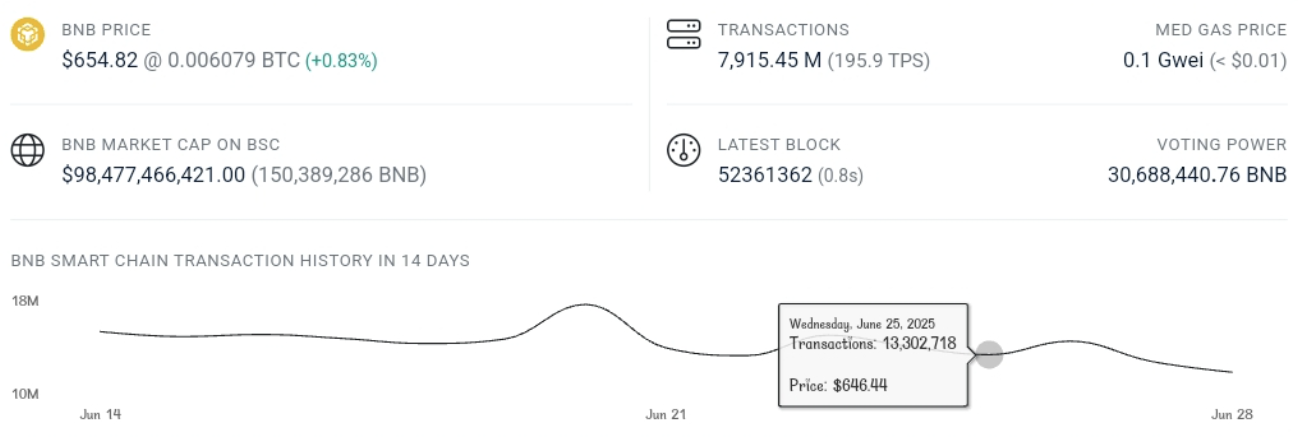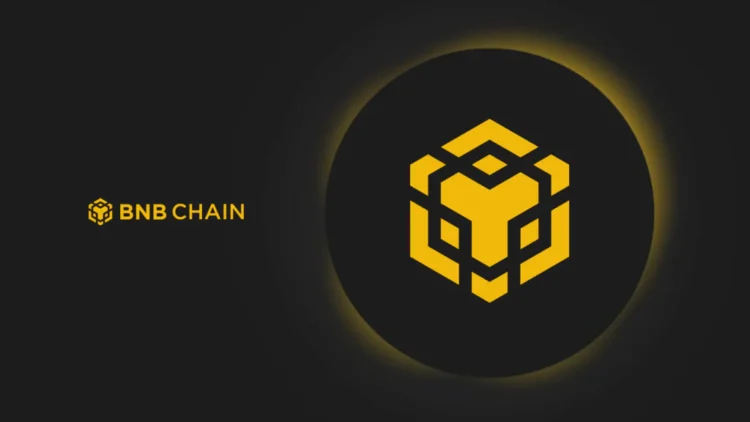BNB Smart Chain has successfully implemented its much-anticipated Maxwell upgrade, cutting average block times nearly in half.
The upgrade, which went live early June 30, reduced block times from 1.5 seconds to approximately 0.8 seconds, according to data from BscScan.

The Maxwell hard fork officially launched on June 30 at 2:30 am UTC, following its testnet deployment on May 26. It was designed to accelerate transaction speeds, improve decentralized application (DApp) responsiveness for developers, and boost the overall efficiency of the network.
“This isn’t just another upgrade — it’s a technical leap forward for faster blocks, better validator coordination, and smoother network performance,”
the BNB Chain team said in a statement.
The upgrade incorporated three key proposals – BEP-524, BEP-563, and BEP-564 – each targeting critical aspects of speed, scalability, and validator communication. BEP-524 focused on reducing block time, continuing from April’s Lorentz upgrade that brought block times down from three seconds to 1.5 seconds.
BEP-563 introduced improvements in peer-to-peer messaging between validators, allowing faster block proposals, reducing missed votes, and enhancing validator network stability, essential for achieving the 0.75-second target.
Meanwhile, BEP-564 introduced two new protocol message types: GetBlocksByRangeMsg, which enables multiple block requests in a single call, and RangeBlocksMsg, which returns all requested blocks simultaneously. These changes are expected to significantly speed up network syncing for validators.
BNB Chain advised developers to test their DApps under the tighter block intervals, refactoring any logic dependent on the previous 1.5-second timing.
“If something breaks, it’s probably your code — not the chain,”
the team cautioned ahead of the rollout.
Validators are also expected to benchmark their systems to handle faster block production and increased message throughput efficiently.
Meanwhile, BNB Chain kicked off 2025 with impressive financial and on-chain results despite facing a nearly 15% drop in market capitalization. According to Messari’s report, the network’s revenue in Q1 surged by 58.1% from the previous quarter, reaching $70.8 million.
If you want to read more news articles like this, visit DeFi Planet and follow us on Twitter, LinkedIn, Facebook, Instagram, and CoinMarketCap Community.
“Take control of your crypto portfolio with MARKETS PRO, DeFi Planet’s suite of analytics tools.”






















